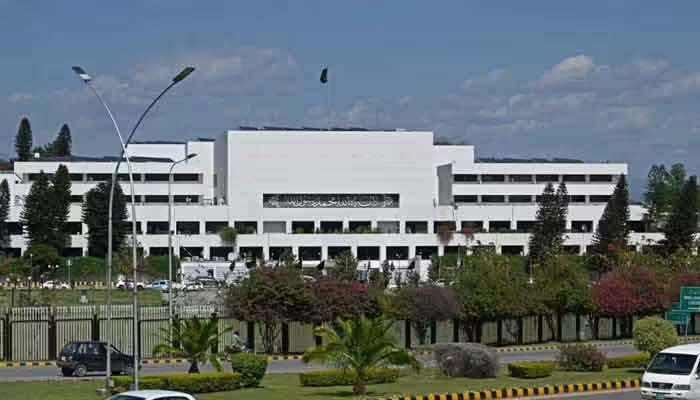The National Assembly and Senate sessions convened over the weekend with the intent of passing critical constitutional amendments but ended without success, leaving the proposed changes in limbo. The key amendments, which included extending the tenure of judges in the Supreme Court and High Courts and establishing a new constitutional court, faced resistance, resulting in an indefinite postponement. This political deadlock signals a significant challenge for the government as it struggles to build consensus among lawmakers.
Events Leading to the Postponement
The National Assembly session, which continued until late Sunday night, was expected to approve the proposed constitutional amendments. However, despite extended discussions, the session failed to produce the necessary results. The Senate meeting, which had its time changed three times throughout the day in an attempt to align with the National Assembly’s progress, was also called off.
This was not merely a scheduling issue; it highlighted the deep-rooted disagreements within political factions over the constitutional amendments. Even though the Parliamentary Constitutional Committee held four separate meetings on Sunday to review the proposals, no consensus could be reached, forcing the Speaker to adjourn both the Senate and National Assembly sessions indefinitely.
The Constitutional Amendments at Stake
The proposed amendments revolved around two key areas: extending the tenure of judges in the higher judiciary and the creation of a new constitutional court. These amendments are seen as pivotal for the judicial system and are a part of broader reforms the government has been trying to implement.
The extension of judicial tenures was designed to bring greater stability to the judiciary by reducing frequent changes at the senior level. Additionally, the proposed constitutional court aimed to handle constitutional cases specifically, which would ease the burden on existing courts and expedite legal processes.
However, the lack of support for these amendments, particularly from influential political figures such as Maulana Fazlur Rehman, has thrown the entire process into disarray. Maulana Fazlur Rehman, the leader of the Jamiat Ulema-e-Islam (F), has been vocal in his criticism of the proposed changes, particularly expressing concerns about how they might impact the balance of power within the judiciary.
Political Ramifications of the Postponement
The indefinite postponement of these amendments is a major setback for the government. PML-N Senator Irfan Siddiqui publicly labeled this as a failure of the government’s legislative strategy. According to him, the government has lost the battle for constitutional reform due to poor planning and the inability to secure necessary support from key political factions. This defeat, he suggested, represents a victory for Maulana Fazlur Rehman, who has emerged as a strong voice against the proposed amendments.
The government’s failure to get the amendments approved raises broader questions about its ability to push through its legislative agenda. With a divided parliament, the ruling coalition may face increasing difficulties in passing significant legislation in the future.
Opposition’s Role and Maulana Fazlur Rehman’s Stance
One of the primary reasons for the failure of the proposed constitutional amendments is the strong opposition from certain factions, including Maulana Fazlur Rehman. As a central figure in the opposition, Rehman has not only opposed these amendments but also effectively rallied other political leaders to reject the changes. His success in delaying the amendments is seen as a significant victory for the opposition, and it reinforces his position as a critical power player in Pakistan’s political arena.
Rehman’s primary objections revolve around concerns of judicial independence and the fear that the amendments could be used to manipulate the judiciary for political purposes. He has argued that the proposed extension of judicial tenure could lead to the consolidation of power within the judiciary, undermining the independence of the courts.
Future Prospects
As the government faces increased pressure from both the opposition and its own coalition partners, the future of these constitutional amendments remains uncertain. While it is possible that the government may attempt to reintroduce the amendments after further consultations, it will first need to build a stronger consensus among political factions.
Without this consensus, any further attempts to pass the amendments will likely face similar obstacles. The ruling party’s failure to secure majority support for these amendments also exposes deeper fissures within the coalition, which could complicate future legislative efforts.
A Government in Turmoil
The indefinite postponement of the constitutional amendments is a significant setback for the government. With political divisions deepening and key figures like Maulana Fazlur Rehman successfully blocking the amendments, the ruling party faces an uphill battle in pushing through its legislative agenda. As both houses of parliament remain adjourned indefinitely, it is clear that the government will need to revisit its strategy and engage in broader political consultations if it hopes to make progress on critical reforms in the future.



